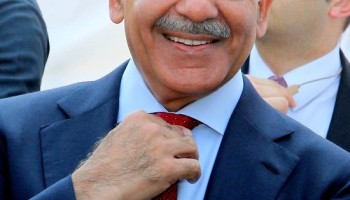Artem Terzyan, 38, from Russia was sentenced to 17 and Deivis Grochiatskij, 44, from Lithuania to 16 years in prison after a seven-weeks-long trial in September.
Their sentences are believed to be one of the largest ever handed down in the U.K. for money laundering, the NCA said.
The investigation started in October 2017 when the police noticed another man, Auriel Zylyfi, leaving a bag full of money in an Audi at a money counting house in North West London.
One month later, another man, Artur Terziu, was seen giving pounds worth around $54.000 to Zylyfi in the underground garage of his flat in Hazlemere Court, Hendon. Both men were arrested and sentenced to a year in prison.
Police searched Zylyfi’s flat and found a detailed register of illegal transactions worth more than $9.4 million, acquired over four months.
After the men were jailed, the same Audi continued to deliver bags of cash over the following seven months to a building where Terzyan and Grochiatskij lived next door to each other.
The two had opened bank accounts on behalf of fake companies and kept sending the money between them back and forth, before transferring it to accounts in Germany, the Czech Republic, the U.A.E, Hong Kong, and Singapore.
Terzyan and Grochiatskij were arrested in June 2018 and police seized several money laundering registers, a computer as well as an encrypted phone, bank cards and account details. Analyzing the seized documents, investigators learned that the criminals laundered the equivalent of about $48 million from 2017 to 2018, with $21.5 million of this being cash deposits.
While on bail, Terzyan and Grochiatskij exploited the government’s COVID-19 support scheme, claiming fake Bounce Back loans (BBL) for their companies, this way illegally obtaining $13.44 million.
They were arrested again in November 2020 and authorities found that they had laundered another $45 million from June, 2018 until their arrest.
“These men and their network played a vital role in enabling other criminals to conceal and access their illicit earnings. The removal of this service will have been a massive blow to organised criminals in the UK and globally,” said Andy Tickner, from the Organised Crime Partnership.






